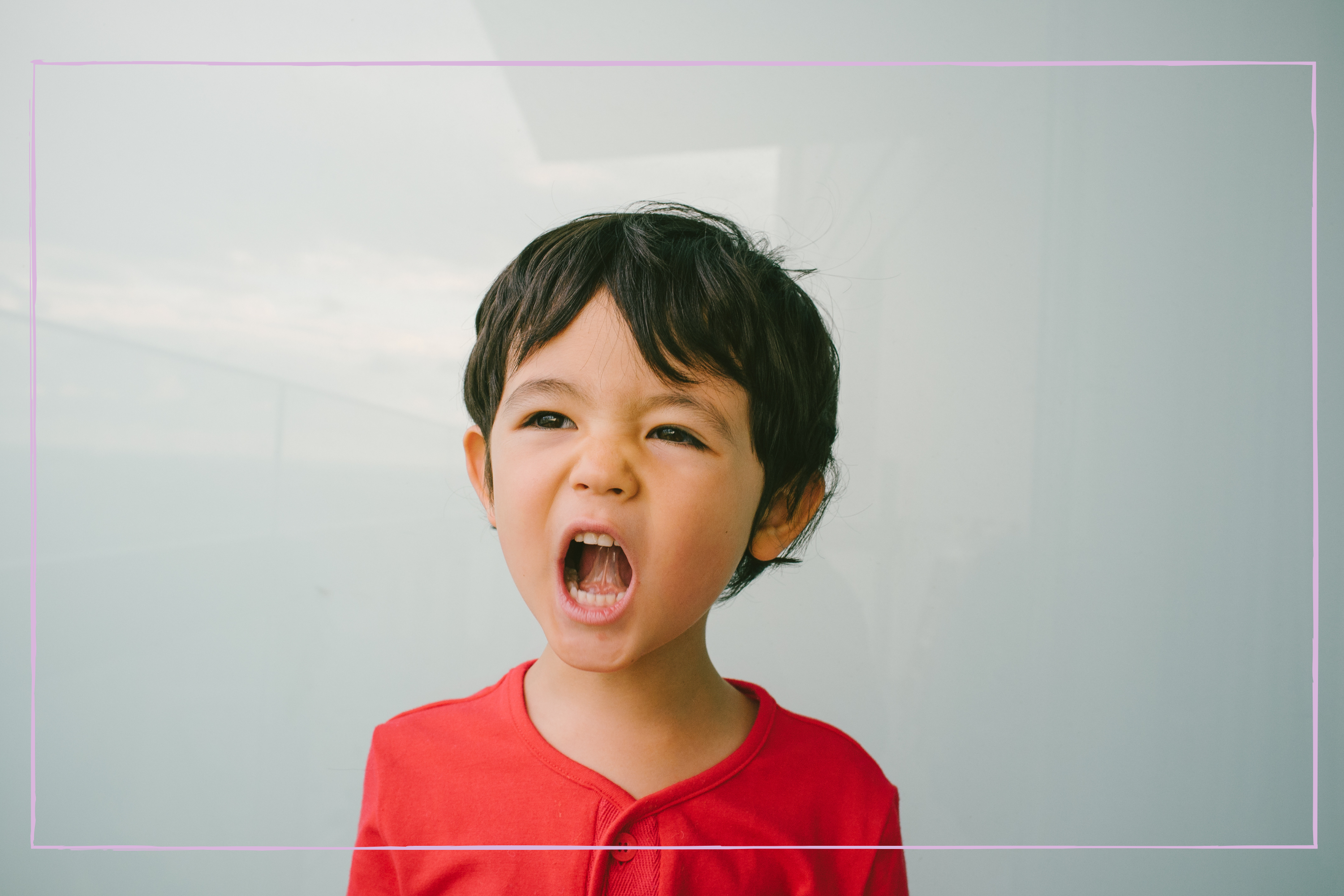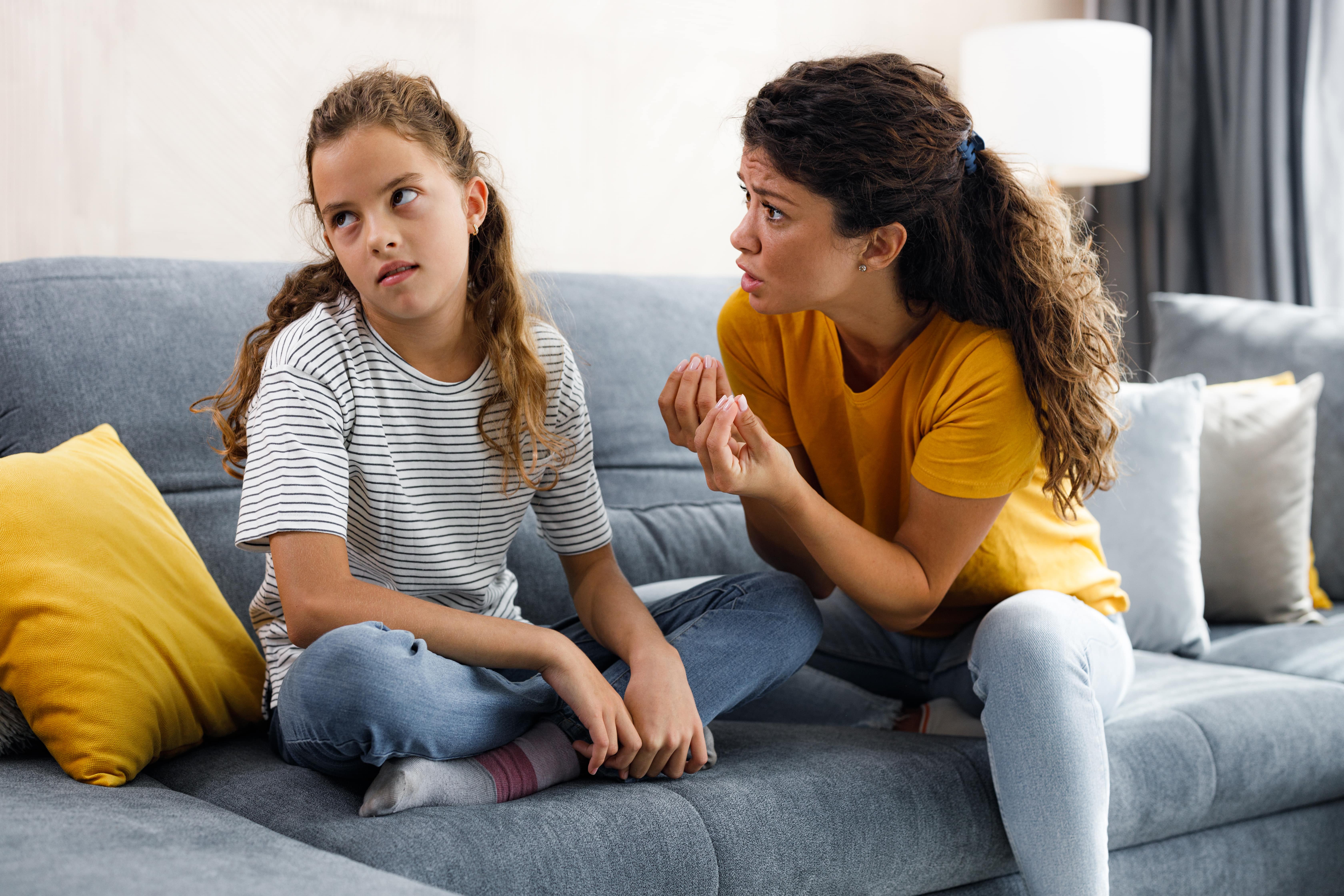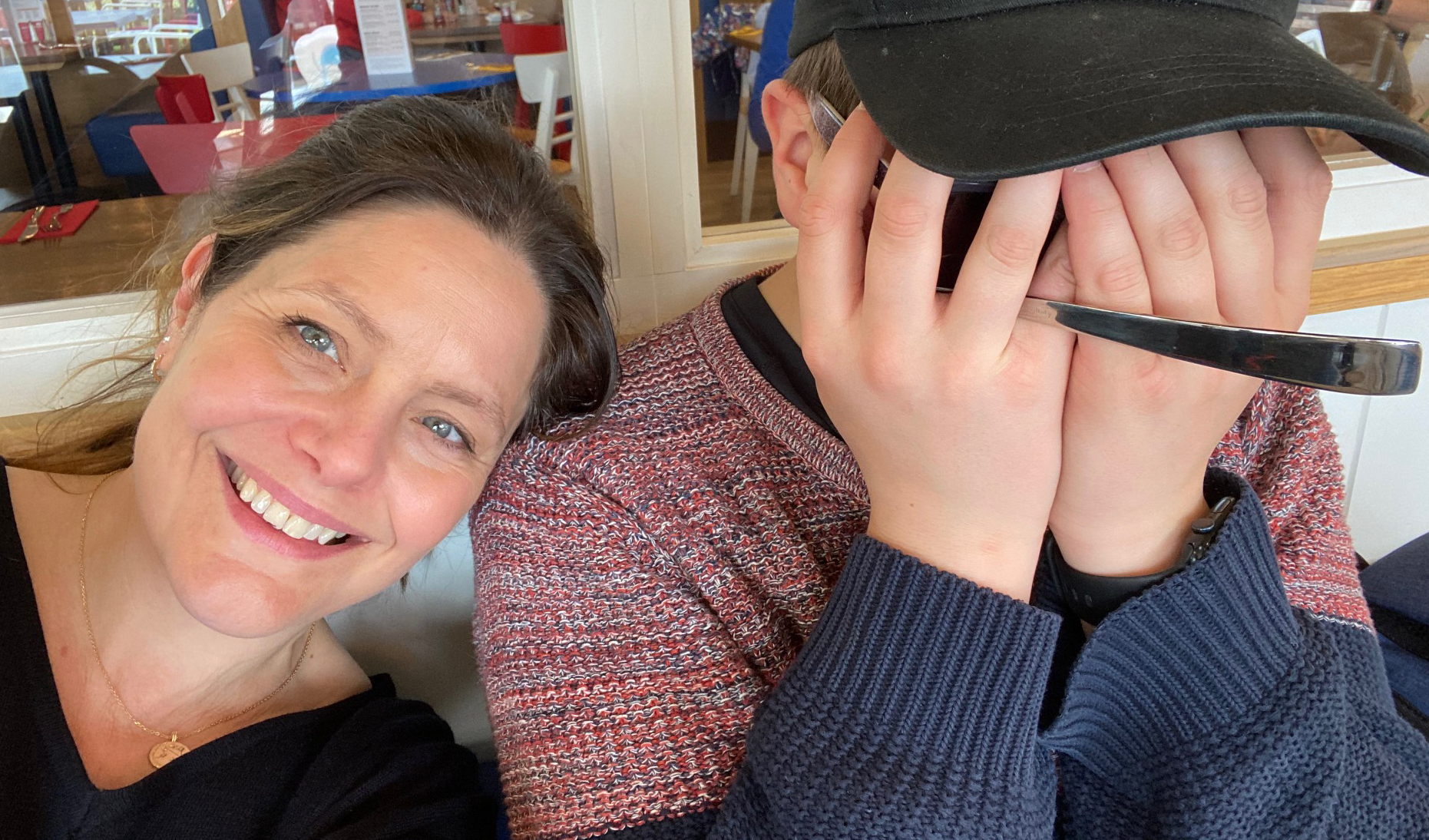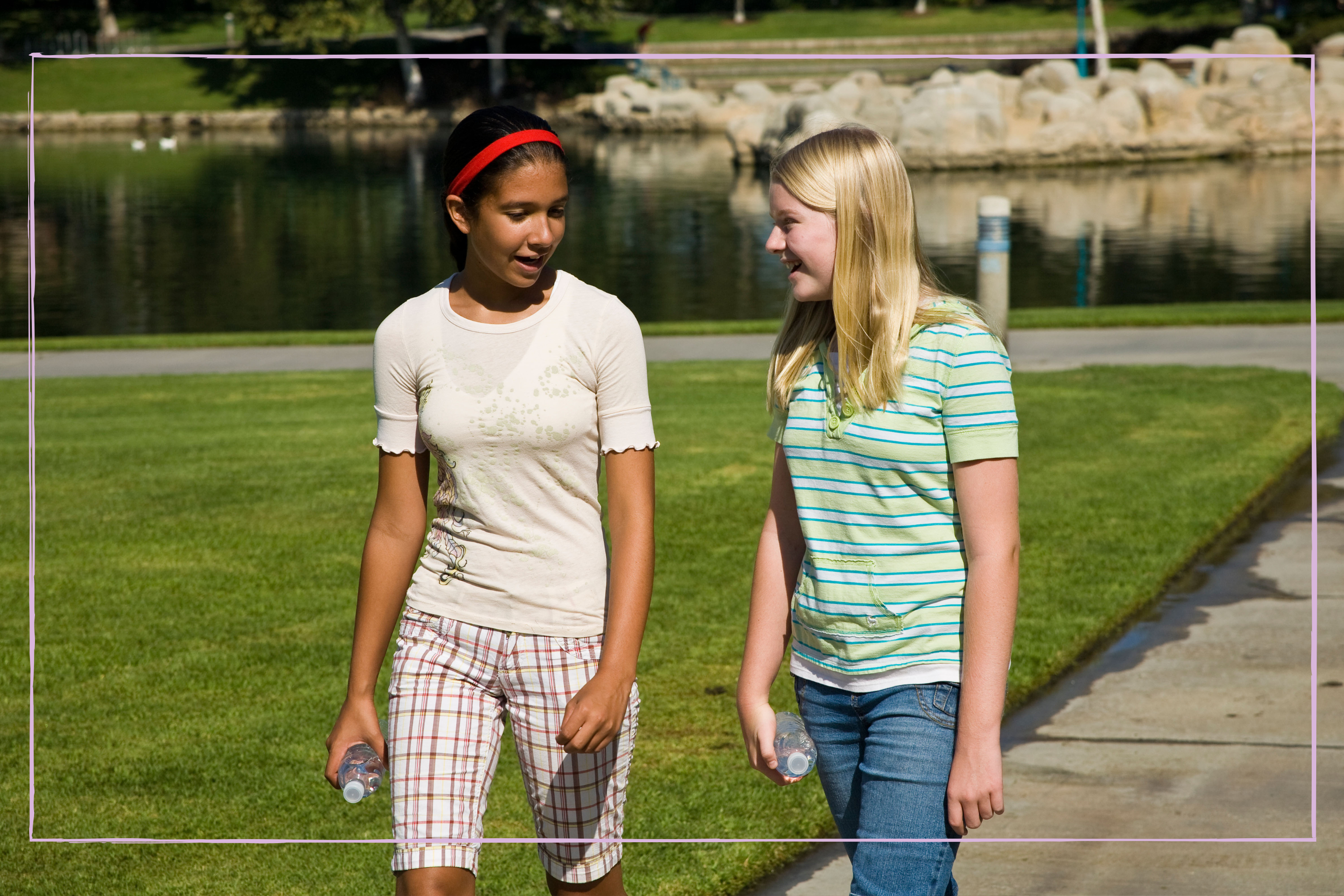‘Kids don’t have the skills to manage those feelings’ – a psychologist reveals 3 reasons why your kid is being rude, and how parents can break the cycle
Actionable and practical solutions to reduce rudeness and make meaningful impact at home


Kids are great at pushing buttons and will no doubt cross the line at some point, but it turns out there’s more to their rudeness than just being defiant or answering back.
If your inability to stop yelling at your kid when they’re being rude to you just ends with your leg in the mum guilt trap, let us put your mind at ease. One of the main culprits of the ‘I’m not going to school!’ argument or bedtime battle is most likely down to where they’re at in the child development stages, so with the constant back-and-forth, the behaviour continues and your tolerance gets chipped away.
The good news is, when we teach kids how to problem solve or express frustration in a healthy way, you can reduce rudeness and make meaningful, lasting change at home. Clinical psychologist and parenting expert Dr Becky Kennedy shares three reasons why your kid is being rude to you and her top tips to stop the cycle.
3 reasons why kids are rude to parents
A post shared by Dr. Becky Kennedy | Parenting
A photo posted by drbeckyatgoodinside on
1. Disconnection
It turns out that adults crave attention as well as kids, so when we experience a lack of it, we feel disconnected and have a tendency to increase conflict – sound familiar? Dr Becky, who is also a number one New York Times best-selling author for her book Good Inside (£14.99, Amazon), explains: "Disconnection is the same reason why we're rude to adults in our life – we want more positive attention; we want them to listen and understand instead of judge, and so rudeness is a sign that we’re looking to be more connected."
2. Lack of skills
Kids aren't just mini adults – yes, they might be born with a full range of emotions but they lack the skills to effectively manage them. "Kids are rude when they’re disappointed or they’re angry and they don’t yet have the skills to manage those feelings so they explode out as rudeness," says mum-of-three Dr Becky.

3. Children always want their feelings to be heard and believed
Acknowledging your kid's feelings goes a long way, and by demonstrating how they can say their thoughts out loud will help with their emotional development. "All of us will escalate the expression of our feelings if we are met with invalidation or minimisation, so the more you hear out and believe your kid’s feelings the less often they’ll be rude," concludes Dr Becky.
So, the next time you're about to react to your child being rude, Dr Becky's parenting truth could help: "Before we intervene, we have to understand."
GoodtoKnow Newsletter
Parenting advice, hot topics, best buys and family finance tips delivered straight to your inbox.
For more parenting tips, find out how to respond when your child says I hate you and discover 3 reasons why punishments don’t improve kids’ behaviour.

From building healthy family relationships to self-care tips for mums and parenting trends - Daniella also covers postnatal workouts and exercises for kids. After gaining a Print Journalism BA Hons degree and NCTJ Diploma in Journalism at Nottingham Trent University, Daniella started writing for Health & Wellbeing and co-hosted the Walk to Wellbeing podcast. She has also written for Stylist, Natural Health, The Sun UK and Fit & Well. In her free time, Daniella loves to travel, try out new fitness classes and cook for family and friends.
-
 Strong willed teens don’t need to be ‘tamed,’ they need to be nurtured - expert shares how
Strong willed teens don’t need to be ‘tamed,’ they need to be nurtured - expert shares howIt might surprise parents when their strong willed child remains that way into the teenage years - instead of crushing this part of their temperament, an expert shares how to nurture it.
By Lucy Wigley
-
 We ask teenagers what they wish their parents had done differently, and their answers are surprisingly candid
We ask teenagers what they wish their parents had done differently, and their answers are surprisingly candidA lot of parents will wonder if their kids wish they'd done some differently, but never get to find out. We got to ask some teens this question, and here's their candid answers.
By Lucy Wigley
-
 9 things I'm doing to teach my teenage son about 'toxic masculinity'
9 things I'm doing to teach my teenage son about 'toxic masculinity'Influencers are having a worrying impact on young boys' behaviour and attitudes
By Debra Waters
-
 I have a 13-year-old son - here’s what I’ve found most difficult about parenting a teenager, and you might be able to relate
I have a 13-year-old son - here’s what I’ve found most difficult about parenting a teenager, and you might be able to relateMonosyllabic responses from our teenagers may sting, but it's normal
By Debra Waters
-
 What is sadfishing? How to talk to your teen about this online trend, and the impact on mental health
What is sadfishing? How to talk to your teen about this online trend, and the impact on mental healthHave you been wondering what is sadfishing? An expert shares why parents should have a conversation with their teens about this potentially dangerous practice.
By Lucy Wigley
-
 9 ways to let teenagers take positive risks this summer, according to an expert
9 ways to let teenagers take positive risks this summer, according to an expertHelp boost your teen's independence and confidence this summer with these small, manageable risks.
By Adam England
-
 What are 'Mickey Mouse' degrees? Expert reveals why this term is unhelpful for teens making higher education choices
What are 'Mickey Mouse' degrees? Expert reveals why this term is unhelpful for teens making higher education choicesWhat are 'Mickey Mouse' degrees? For teens embarking on those all-important higher education choices, it's an unhelpful term.
By Lucy Wigley
-
 Teens who display this one important quality during adolescent friendships, go on to be great parents according to research
Teens who display this one important quality during adolescent friendships, go on to be great parents according to researchA study has shown teens who display this one important quality during adolescent friendships, go on to be great parents - and it's fascinating.
By Lucy Wigley